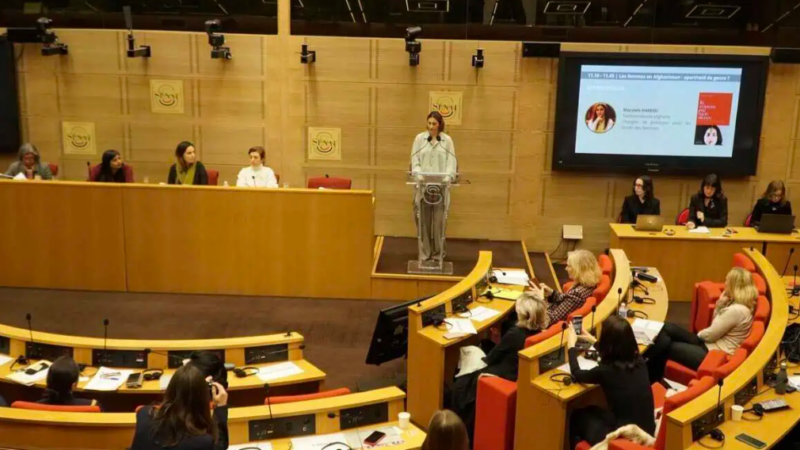China wary of Taliban or terror groups in Afghanistan?

China seems to have realized its mistake of embracing the Islamist militants in Afghanistan. Four months ago, China was among the first few countries to embrace Taliban in war torn country in August. Four months later, Beijing seems to be losing confidence in Taliban that had long been a global pariah due to its support of terrorism and the repression of women.
China has made its views clear on the prevailing conditions in Afghanistan. A senior Chinese minister recently expressed his deep concern about the “complex and intricate” Afghan situation that terrorist groups including ISIS and Al-Qaeda are using to expand their presence in the region. Chinese Assistant Foreign Minister Wu Jianghao noted (22 Dec) that the year has witnessed major changes in the international counter terrorism landscape and the resurgence of international terrorist activities. The minister said that terrorist groups including ISIS, Al-Qaeda and ETIM have been using the chaos in the region to expand their presence and stir up troubles. Terrorist organisations for whom borders and boundaries have no meaning, cannot be fought by one country alone, however the minister said that the international community should join hands to combat terrorism.
According to him, there is to foster the awareness of a community with a shared future, important role of UN and strengthen capacity building in developing countries. Besides, there is a need to follow the principle of addressing both symptoms and root causes, tackle new terrorist threats and ideologies. He expressed his views at a recently held seminar by the China Institutes of Contemporary International Relations (22 Dec) hosted by the China Institute of International Studies.
The Chinese Foreign Ministry issued (28 Oct) a statement saying that changes in the Afghan situation have complicated the regional and international counterterrorism situation, and the abuse of the Internet and emerging technologies by terrorist forces has become an increasingly acute problem.
Taliban’s latest move to dissolve Afghan election commissions as well as the state ministries for peace and parliamentarian affairs on the ground that these were unnecessary institutes for the current situation in Afghanistan, has further created suspicion over Taliban’s real intention. Experts have not ruled out the possibility of Taliban imposing a harsh regime in near future, despite their assurance to the contrary. Taliban had imposed a harsh regime when they were in power 20 years ago.
It may be mentioned here that election commissioners were mandated to administer and supervise all types of elections in the country including presidential, parliamentary and provincial council elections. Taliban has found that the ministry for peace and ministry of parliamentarian affairs were unnecessary ministries in the government’s current structure. It had previously shut down the former Women’s affairs ministry.
China’s endorsement of Taliban ‘s important role in governing Afghanistan had provided an important boost of legitimacy for Taliban that had long been a global pariah due to its support of terrorism and the repression of women. It was China which had refused to recognize Taliban rule in 1996 and left its embassy shut for years. Within four months of recognizing its relevance, China seems to be losing confidence in Taliban.
In August, China had sought from Taliban to not allow Afghan soil to become a hub of terrorist activities and provided all kinds of support including financial one to Taliban. China which has been eying on Afghanistan’s mineral resources for several years, decided to include it in Xi Jinping’s Belt and Road Initiative (BRI) interest China, but has done little and that too only in principle since August. That because Chinese are worried about their Sunni Uighurs in Xinjiang teaming up with the Taliban.
China has always been concerned about Afghanistan becoming a base for terrorists and extremists fighting for the independence for the largely Muslim region of Xinjiang. China had raised this issue with Taliban leaders in the meeting prior to August 15. In response, the Taliban had pledged that it would “never allow any force to use the Afghan territory to engage in acts detrimental to China.” But Taliban has not taken any steps in that direction.
China has adopted a wait and watch policy towards Afghanistan ever since Taliban took over. It maintained that it would not interfere in the internal matters of Afghanistan. In October, Chinese foreign minister Wang Yi had sought assurances from the Taliban that it will make a “clean break” with the East Turkestan Islamic Movement (ETIM), a group Beijing alleges is inciting separatism in neighbouring Xinjiang, warning Kabul that the group not only threatens China’s security but also Afghanistan’s long-term stability.The fact is that Beijing has always been uncomfortable with the Taliban’s ideological agenda. Beijing has repeatedly criticized the US for acting “irresponsibly” in its “hasty withdrawal.”






